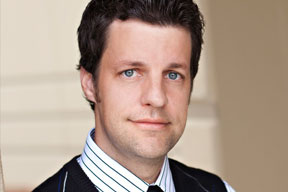Cultivate Keynote Speaker Highlights Seven Principles Of Successful Leaders

Jeremy Kingsley
If you want to make your business better, the process should start with making your people better by inspiring them. This was the message delivered by Jeremy Kingsley, a best-selling author and speaker who kicked off Cultivate’16 in Columbus, OH, with a morning keynote that offered a sneak peek at the “Significant Seven” principles of successful people.
According to Kingsley, the leaders who are the most successful at inspiring their staff to produce results will often demonstrate each of these principles. As you read through them, consider how well you match up.
1. Passion
Everything starts with knowing what you’re passionate about, Kingsley says. “Your passion is defined by something you care about and have excitement, love, and commitment for.” This passion should be shared not just by you, but also by the people working for you.
“Passion intensifies focus, it enables creativity and brainstorming, and it gives you the drive to persevere during challenging times,” Kingsley says. What’s more, passion will likely make your employees want to stay longer at your company.
2. Loyalty
For many employees, loyalty can be built by “relational equity,” or, in other words, an equal commitment from both parties in the employer-employee relationship. When your employees know they are valued and can speak honestly, this can create a positive atmosphere of loyalty, Kingsley says.
3. Patience
Businesses and owners need to be fair and have realistic expectations for their employees to follow, Kingsley says. In many cases, this will start when something doesn’t go according to plan. When this happens, how do you react?
“People will see how you react, and they’ll then know what they can expect in the future,” Kingsley says. “When you react to an adverse situation in a positive way, it sets up a stronger atmosphere.”
4. Communication
Always include pertinent details in your conversations with your staff, Kingsley says. Be clear, and don’t assume your employee will simply know what you want.
“Repetition can be your friend, even when it’s easy to bypass something that may be obvious to you,” Kingsley says.
5. Integrity
“How do you define a person with integrity?” Kingsley asks. “Simply put, it’s someone who knows, says, and does the right thing.”
You need consistent trust in your team, and if this sense of integrity breaks down, all of the other principles mentioned here will be meaningless.
Putting integrity into action, Kingsley cited an example of an employee at a pizza shop who accidentally make an order incorrectly. His boss was patient with the employee’s mistake, and offered up the extra pizza as a “crew pie” for his staff to eat. Seeing an opportunity, the employee then began to make the same “mistake” on a regular basis, until his boss caught on.
The bottom line, according to Kingsley, is this: Don’t try to trick or manipulate someone, because it will quickly ruin the relationship.
6. Humility
In order to serve your customers better, you need to be humble enough to put their needs first, Kingsley says.
“It’s not about thinking less of yourself, but thinking of yourself less,” Kingsley says.
The natural inclination for a leader is to brag, but if you’re going to do so, do it about someone else, Kingsley says.
“Be confident enough in your abilities, but humble in your attitudes.”
7. Go The Extra Mile
There’s just something special about knowing you have a teammate who, when necessary, will go the extra mile.
“The reward is not always about money, but rather in knowing that you’ve made an impact on someone’s life,” Kingsley says.
Want a great example of this? Kingsley wrapped up his presentation by bringing the audience to tears with a recollection of one of his previous jobs as a taxi driver. One night, he picked up an elderly woman from her small apartment which, upon entering, he noticed was packed with small boxes.
After giving him the address of her drop-off location, she asked him to take the long way and drive through a couple older areas of the town, including a church, a diner, and old house in a long-forgotten neighborhood.
Not needing to be anywhere in a hurry, Kingsley eventually turned off the meter, but he didn’t realize the significance of the drive until he arrived at the destination: a hospice center.
“I was able to give this nice woman one last look back at her life,” Kingsley said. As you might expect, he waived the fee for the night and, after dropping off the woman, went on his way knowing he had gone the extra mile.










